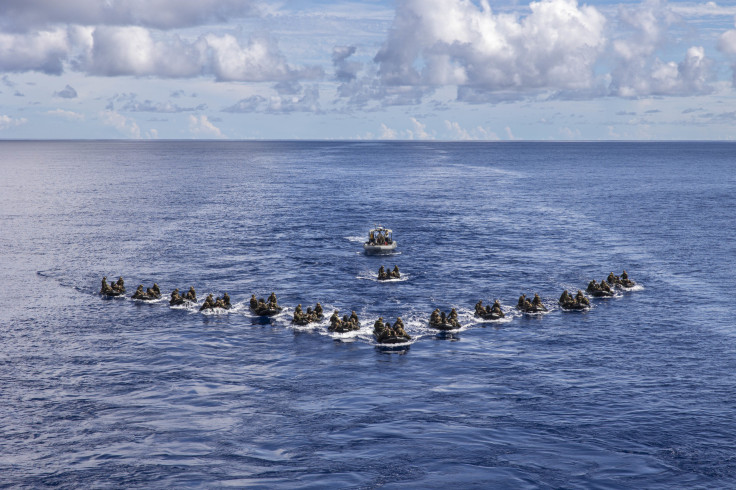Taiwan Tensions: Philippines May Allow US Military To Use Its Bases In Case War Breaks Out
KEY POINTS
- Philippines has been trying a tricky balancing act between the United Sates and China
- Recent military exercises by China extended into the Philippine exclusive economic zone
- Washington and Manila have shared strong military cooperation
In the event of a China-Taiwan conflict, Philippines may allow the U.S. forces access to its military bases, the Philippine ambassador to the U.S. has said.
In an interview to Japan's Nikkei, Ambassador Jose Manuel Romualdez said U.S. forces may be given access to Philippines' military bases provided "it is important" for the country "own security."
The Philippines, which lies in close geographical proximity to China, across the South China Sea, is a key U.S. ally in the region. The country's bases will be a crucial in any U.S. operation that seeks to counter China's anti-access/area denial military doctrine and rush aid to Taiwan in the eventuality of a military attack.
Romualdez's comments are significant as he is a relative of Philippine President Ferdinand Marcos Jr. and a prominent voice in his country's foreign and security matters.
The comments follow the visit of the Secretary of State Antony Blinken to Manila in August where he met President Ferdinand Marcos Jr. and assured him that Washington would defend Manila in the case of an attack from China.
Since the end of the Second World War and through the period of the Cold War, Washington and Manila have shared close military cooperation. For most of the last century, the U.S. has operated two major bases in the Philippines which will form important launchpads in the case of any U.S. deployment in the region.
The Subic Naval Base in the Philippines was the largest U.S. naval installation in the country and played a prominent role in supply and maintenance during the Vietnam War and the Cold War. Similarly, the Clark Air Base, which became the largest U.S. military air base outside the U.S. was a vital connecting link with the U.S. forces in the region. Importantly, the Clark Air Base, located on Luzon Island in the north of the country, is close to Taiwan, which lies across the Luzon Strait.
When President Marcos Jr, who took office in June, he had tried to maintain the tricky balance of trying to boost business ties with China while maintaining close relations with the U.S. However, the dynamics have changed since early August, when China conducted live-fire military drills with some exercise areas infiltrating into the Philippine exclusive economic zone.
Former Philippine President Rodrigo Duterte, too, had sought to shift his country's foreign policy away from the United States, toward China. However, he failed to tame Beijing's assertiveness in the South China Sea where it stopped Manila from carrying out fishing and oil & gas development projects. The failure of his China policy led Duterte to admit to the importance of the Philippines-U.S alliance, even to the extent of expressing his willingness to allow American forces to use Philippine bases and facilities in case the crisis in Ukraine, following the Russian invasion, spreads to Asia.

© Copyright IBTimes 2024. All rights reserved.





















